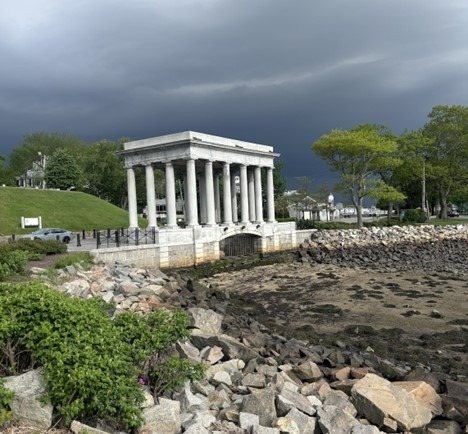Thank you for publishing both sides of the Plymouth Rock story in your November 12, 2024, article, “At Thanksgiving time, sizing up Plymouth Rock.” This 10-ton piece of granite could well be the last vestige of our geological history if Plymouth doesn’t stop sand and gravel mining. Today, the boulders extracted by mining operations are more valuable per pound than the sand itself. The boulders, Plymouth Rock-like, are used for projects like coastal armoring – fighting Mother Nature by stacking them up on our bluffs and beaches.
The land that contains these boulders and sand and gravel is part of the Wampanoag Indigenous people’s history. When we strip off all the trees and vegetation and level our highest hills, we erase Indigenous history and our shared environmental heritage. This must stop. As our community holds the National Day of Mourning and Thanksgiving events, we call on Town officials to deny the two pending permit applications for sand and gravel mining in Plymouth. These are in Cedarville, in the area of the Great Lot, the area designated as reservation for the Herring Pond Wampanoag people in the 17th century. The shameless destruction is a permanent black mark on the town’s public image. Much like the scars left by the current desecration of the land happening at numerous mining sites throughout the town.
– Melissa Ferretti, Linda Coombs, and Meg Sheehan
Melissa Ferretti is a 4th term tribal chairwoman of the Herring Pond Wampanoag Tribe. Linda Coombs is a member of the Aquinnah Wampanoag Tribe, author and educator. Meg Sheehan is an environmental lawyer and coordinator of Community Land and Water Coalition.

